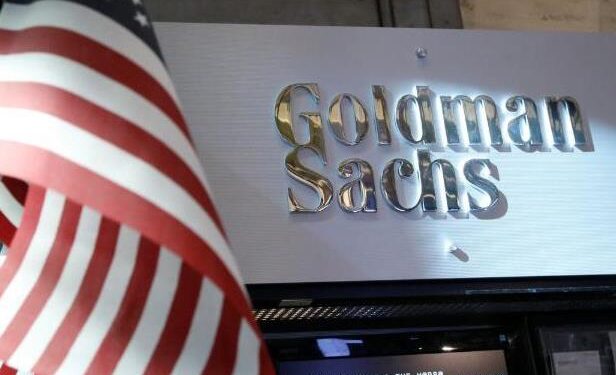① Goldman Sachs strategists raised their expectations for the Asia stock market on Friday, citing a more favorable macro environment and increased certainty around tariff policies; ② The bank has increased the 12-month Target Price for the MSCI Asia Pacific (excluding Japan) Index by 3% to 700 points, which means the expected ROI for the index during this period could reach 9%; ③ Strategists maintain a ‘Shareholding’ position on the stock markets of China, Japan, and South Korea.
On July 11, the Financial Network reported (Editor: Bian Chun) that local time on Friday, Goldman Sachs strategists raised their expectations for the Asia stock market due to a more favorable macro environment and increased certainty regarding tariff policies.
Led by Timothy Moe, Goldman Sachs strategists stated in a report that the bank raised the 12-month Target Price for the MSCI Asia Pacific (excluding Japan) Index by 3% to 700 points, which means that in USD terms, the expected ROI for the index during this period could reach 9%.
The strategists stated, ‘Tariff imposition and loose monetary policy may be significant macro factors affecting the Asia stock markets in the third quarter.’ They indicated that even if the imposed tariff rates are slightly higher than the current baseline expectations, ‘the impact on fundamental growth may not be as negative as the market feared in early Q2.’
They added that considering the 14 times expected PE of the Asia stock market aligns with the ‘fair value of the macro model,’ earnings growth will also become a primary driver of return.
Goldman Sachs strategists maintain a ‘Shareholding’ position on the stock markets of China, Japan, and South Korea while downgrading the rating of the Malaysian stock market to ‘Shareholding’ as they favor the North Asian markets.
Recently, the Chinese stock market has performed strongly, showing a clear upward trend in indices. This Wednesday, the Shanghai Composite Index rebounded strongly, returning to 3500 points for the first time in 8 months, the last time reaching that level was on November 8, 2024. Since the beginning of this year, the Shanghai Composite Index has risen over 8% in total.
Earlier, on July 6, Goldman Sachs’ research team released a report titled ‘Playing the Return Symphony in China’s Cash Symphony.’ The report stated that by the end of 2025, both onshore and offshore listed companies in China are expected to distribute a total of 3 trillion yuan in dividends, reaching a historic high in dividend payout.
Goldman Sachs also stated that the growth in dividends/share buybacks from Chinese listed companies in the current low-interest environment will attract more investors, and Company Valuation is also expected to rise.
Goldman Sachs’ team also upgraded the rating of Hong Kong stocks to ‘Market Weight’ on Friday, stating that Hong Kong stocks will become one of the main beneficiaries of the Fed’s easing cycle leading to a weaker dollar. They also added that the Philippine stock market and the Taiwan stock market are other regional markets that are ‘most sensitive and positively responsive’ to these factors.
In November last year, Goldman Sachs downgraded the rating of Hong Kong stocks to ‘Shareholding’, but since then, the Hang Seng Index and the MSCI Hong Kong Index have both risen by at least 18%.
The bullish voices are endless.
Recently, analysts from the well-known American research brokerage firm Bernstein also expressed their bullish outlook on the Asian stock market for the second half of this year, as they expect an increase in foreign capital inflow to the Asian market, improvement in corporate earnings, and a more relaxed policy environment, all of which will drive stock prices up. The company is particularly bullish on the stock markets in South Korea and India.
In addition, Standard Chartered Bank’s Wealth Solutions Department released the ‘Global Market Outlook for the Second Half of 2025′ earlier this week. The report pointed out that, from a macro perspective, the global central banks’ easing policies, the high likelihood of a soft landing for the US economy, and a weaker dollar are all favorable for risk assets. Standard Chartered continues to be bullish on global stocks and has upgraded Asian (excluding Japan) stocks to an overweight position.
Regarding the Chinese market, Standard Chartered is bullish on the Technology, Communication Services, and Consumer Discretionary industries, maintaining an overweight position in Chinese stocks.

















